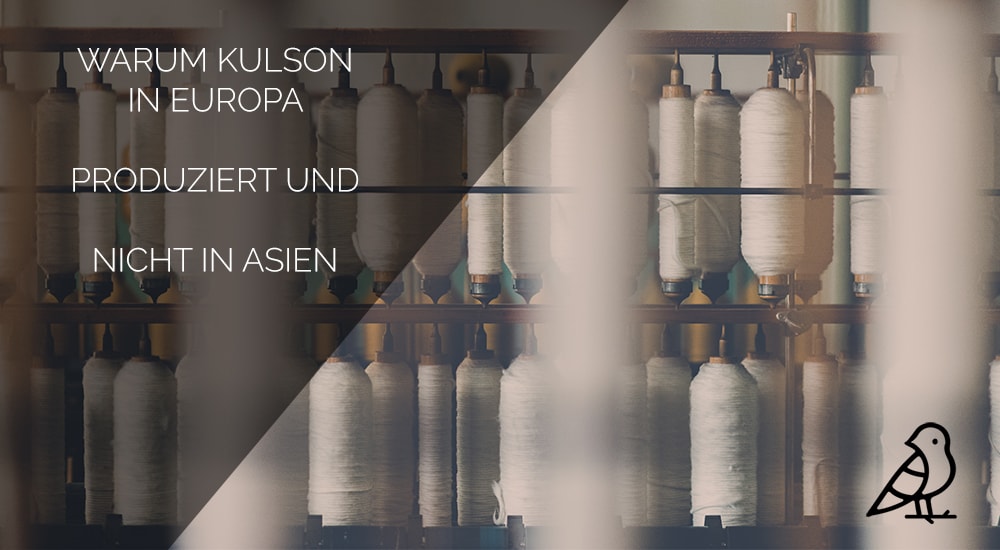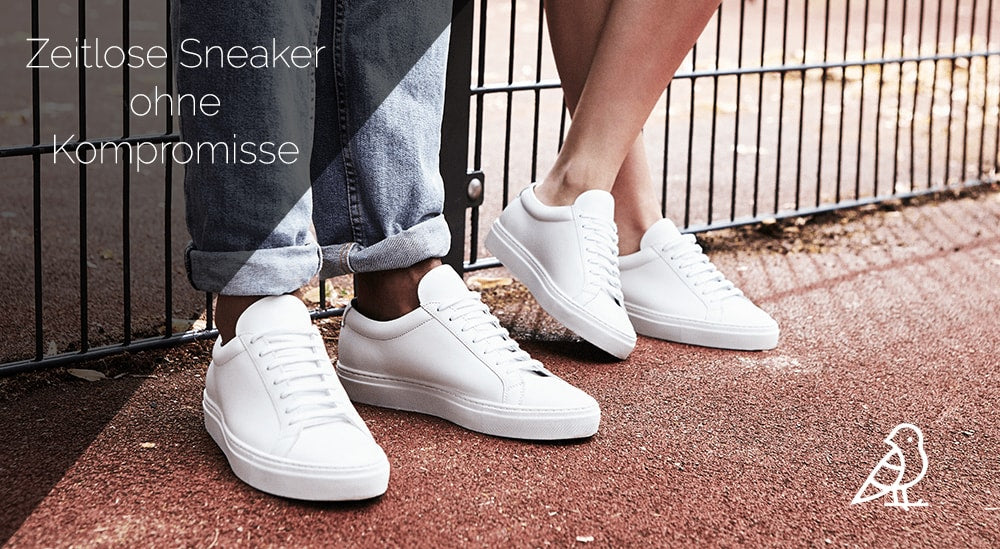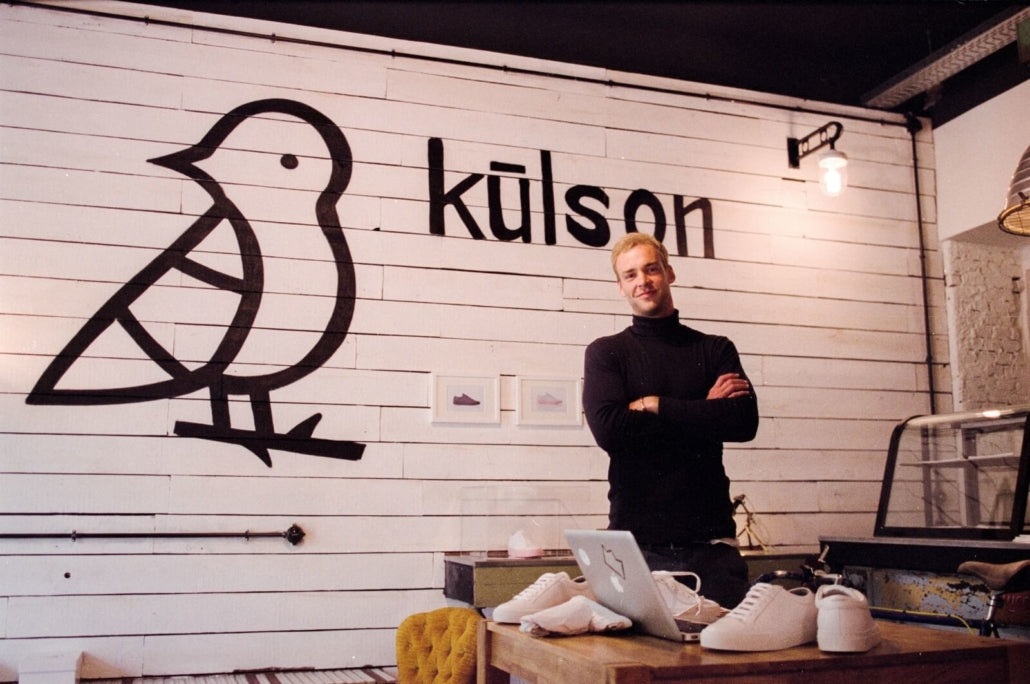

“EXPENSIVE IS NOT ALWAYS BETTER, BUT SUSTAINABLE TRULY IS”.
Every consumer should ask himself the question under which conditions the products he buys were manufactured. The price alone cannot always give an indication. Because it is a fallacy that expensive also means better! A higher price does not ensure that fair working conditions and environmental regulations prevail and are observed.
Stiftung Warentest has given a very vivid example: If products are produced very cheaply, for example a T-shirt for only 3 euros, then the seamstress can hardly earn anything from it. If you buy a T-shirt for ten or 30 euros, the more expensive T-shirt may have even been produced under worse conditions than the cheaper one.
This is not always transparent. Basically, a seamstress earns about one percent of what the consumer pays in the shop. Half of the price usually stays in the target country and only about 20 percent goes back to the country of production.
HEALTH-ENDANGERING CONDITIONS ARE A BIG PROBLEM
In the countries where shoes, but also other textile products, are commonly manufactured, miserable and health-endangering conditions are a big problem, especially in Asia. Because there are few guidelines and existing laws are not observed.
A low wage for workers is just one of many construction sites. Even with the legal minimum wage, it is not possible for workers to make a living from it. In China, for example, the minimum wage is only half of what a decent life would need, in Bangladesh even only a fifth. Low wages also lead to illegal overtime due to lack of money.
In addition, most factories do not provide safe working conditions, especially in tanneries. For example, animal hides soaked in chemicals are often used there without protection or appropriate safety measures. The handling of such toxic chemicals, chlorine or pesticides can lead to cancer and skin diseases, eye damage and a shorter life expectancy if used improperly.
Health problems do not only occur in tanneries, but also in the shoe factories themselves. These are mostly related to the handling of toxic adhesives, cuts and respiratory air contaminated by the toxins from tanned leather.
Therefore each kūlson sneaker is part of the kūlson Underwater Project and 3% of the gross purchase price goes to various environmental projects worldwide.
This often leads to back and vision problems. However, due to poor social welfare, there is no possibility of regular monitoring.
One of these organizations is 1% for the Planet. It is a global movement that inspires companies and individuals to support environmental solutions through annual membership and daily actions. The organization advises on the implementation of strategies, certifies donations and strengthens the network’s impact.
DON’T HARM THE PLANET WITH TOXINS
Apart from unfair working conditions, the use of pesticides, chlorine and toxic chemicals causes an enormous burden on the environment. Waste water is often untreated and discharged directly from the factory into the surrounding waters.
There are many stages in the production of textile and especially leather goods where the environment is heavily polluted. The cultivation of wool, for example, entails enormous water consumption and the use of pesticides, as the processing of fibres is also carried out with the help of mostly strong chemicals.
All in all, the improper use of chemicals also causes the ruthless disposal of those that are harmful to humans, animals and the environment. However, the conditions do not only affect the workers themselves, but also the people who live near such factories. In part, this deprives them of any livelihood, as they are no longer self-sufficient when land, air and water around them are poisoned.
The topic of child labour is also still an issue. In China, for example, there are officially no more children working in textile production, but in Pakistan and Bangladesh this is still the norm.
Of course, this does not mean that you should no longer buy products from developing or emerging countries.
It also offers many people the opportunity to develop economically, earn money and thus achieve a higher standard of living. However, reasonable conditions must be created for the workers with regard to occupational safety, wages and the environment.
But one does not always have to look into the far distance. The textile and clothing sector is also an important part of the European economy. It is an industry that provides jobs for more than two million people. “Made in Europe’ basically stands for fair working conditions and quality.
But just like production in Asia, production in Europe is also under criticism. Research by the “Clean Clothes Campaign” and the “Change Your Shoes” initiative shows the reality in the European shoe industry. Starting with the tanneries in Italy to the factories in Central and Southern Europe.
Tens of thousands of workers produce Italian or German shoes there, sometimes at even lower wages than in China, for example! Incredible, isn’t it? Each of us has an average of eight to 13 pairs of shoes. In Europe shoes are particularly in demand, which is why Europe is also the world’s strongest importer of shoes.
In numerical terms, this means that 40% of the shoes produced worldwide are sold in Europe. Only 10% of the world’s population lives in Europe.
CHOOSE FAIR CONDITIONS AND HIGH QUALITY
Asia is the largest shoe producer in the world. In 2014, China led the market with around 64%, followed closely by Bangladesh, India and Pakistan. The low production costs are of course the reason why the production volume abroad and especially in Asia is so extremely high. But in the area of high-priced leather shoes, the European share is considerable.
Fortunately, many consumers are becoming increasingly aware that they prefer sustainable goods produced under fair working conditions to cheaper and often harmful products, at least when they have a choice. This trend is not confined to textile and shoe production, but is fortunately also evident in a number of other sectors. Unfortunately, however, many companies still lack transparency and it is not clear to the customer under what conditions a product was manufactured.
Due to the sometimes fatal conditions in Asia, the minds behind the kulson brand knew from the very beginning that they wanted to have their fashion produced not in Asia but locally in Europe. After all, sustainability, transparency, fair working conditions and short transport routes are all important concerns to the founders.
They want the shoe to shine not only through its timeless design and craftsmanship, but also through ethically justifiable production conditions and an additionally launched project that supports the cleaning of the seas from plastic waste with every pair of kulson sneakers sold.
THE POWER OF COLLECTIVE INFLUENCE
The fashion label kulson is thus dedicated to manufacturing in Portugal close to the beautiful city of Porto. The leather and all other components of the shoe are European and the production site and the production site has been strictly selected according to the above-mentioned aspects and is subject to continuous strict controls.
It is important that the people’s awareness in this field is also increased and that products manufactured under fair conditions are purchased. This must not be limited to the textile and footwear industry, but it would at least be a start.
Just like the in-house Kulson Underwater Project, the same applies here: The power of collective influence should never be underestimated. The more people pay attention to buying only certain products, the more companies are forced to rethink their production chain and adapt to the needs of consumers. Until then, we need to go ahead as a good example and with a clear message.
Do your part...


